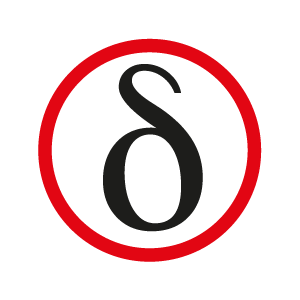What is coaching and how can it help you?
Are you thinking about embarking on coaching and not sure how it can help you? This guide will help you understand what coaching is and determine your readiness.
Coaching is a partnership designed to help you unlock your potential to maximise your performance, learning and growth.
Depending on what you need and what is important to you, coaching can help you build self-awareness, insight, confidence and skills in order to create positive changes in your personal or professional life. People who have experienced coaching report discovering valuable new perspectives, making better decisions and achieving sustainable performance.
Coaching is a collaborative relationship formed between coach and coachee for the purpose of attaining professional or personal development outcomes…valued by the coachee.
Grant et al, 2021
In essence coaching is a collaborative, dynamic relationship, with your coach acting as your champion, supporter, thinking partner and guide. It is a relationship built on purpose, trust, personal responsibility and hope. Your coach supports you by listening deeply, asking questions and giving feedback that will help you to identify and focus on what you really want to achieve and how you are going to get there. Your role is to act on the insights you experience during coaching and put in focussed and consistent effort to make positive changes.
A coach is not there to tell you what to do or how to get there, because that won’t help you develop your self, your skills or your sense of agency. Their focus is to help you develop your own capabilities, resources and solutions so you can learn how to move toward valued goals and create sustainable success. They may draw on tools such as personal profiling, reflective exercises and activities to further clarify your thinking, generate options and strengthen your sense of self. This approach enables you to make better decisions, gain more meaningful and satisfying outcomes and become a better navigator of your life.
Coaching is different from counselling. Many coaches have counselling skills, so they can help you tackle difficult issues and offer an empathic ear. Skilled coaches are trained to help you proactively manage the impact of your thinking, behaviour and emotions so you can develop more effective strategies to move forward. However, if therapy or psychological support is more appropriate for you now they will advise you to seek the support of a qualified mental health professional.
Coaching borrows from both consulting and therapy. What is unique about workplace coaching is it focuses on the future, fosters individual performance in a business context and helps people discover their own path.
Harvard Business Review survey of organisational coaches, 2009
Good coaches draw on robust training, current research, diverse expertise and their own experience in achieving personal and professional growth. They can have backgrounds in psychology/counselling, health/wellness, consulting, human resources, education/training, sports/performance, business or entrepreneurship and hold relevant and specific training that enables them to work with artistry and mastery with each person and their emerging needs.
As coaching evolves from a growth industry to a more evidence-based professional practice, guidelines such as the Standards Australia Coaching in Organisations handbook Standards, coaching codes of ethics and industry research are being designed to help coaches and their clients better understand how and when to use coaching.
Is coaching right for you?
Coaching requires commitment and work from you. People who get the most from the relationship want to learn and grow. It requires an open mindset and willingness to share and engage in honest, open conversations.
If you’re motivated to do the work, ready to be coached and have a supportive environment around you, plus good chemistry with your coach, you’re likely to achieve successful outcomes.
However, if you feel you need help making significant changes in your life and have been experiencing stress, low motivation, worry or unhappiness for some time, coaching might not be right for you now. Take the K-10 test to see if you should speak to a mental health professional.
Executives who get the most out of coaching have a fierce desire to learn and grow.
Harvard Business Review survey of organisational coaches, 2009
What do you want from coaching?
If you feel that coaching is the right fit, your next step is to identify a clear purpose or desired outcomes. How you answer the following questions may determine the kind of coach and coaching relationship you choose.
First consider the purpose and type of coaching you need:
- Skills coaching. Do you need to learn new skills?
- Performance coaching. Do you need to develop existing skills or perform better?
- Developmental coaching. Do you need to develop a new mindset or perspective?
- Remedial coaching. Do you need to change behaviours that get in your way?
Then reflect on the changes you are looking to achieve:
- How would you like to act, think or feel differently after coaching?
- What would people who know and work with you notice was different about you?
- What thing, if changed, do you think might make the most difference to your personal or professional life?
- What are you willing to do to start making that happen?
You don’t need to have clear goals before you start. Coaching can help you hone them and work out an action plan to move forward.
My coaching approach
As a qualified coach with a Master of Business Coaching (with Distinction) from the University of Wollongong, I apply evidence-based coaching and positive psychology. I follow Standards Australia Coaching in Organisations Guidelines and honour the International Coach Federation ethical code.
I focus on enhancing your strengths and unlocking your potential for greater performance, learning and growth. I also bring a narrative coaching lens to explore your story and help you to create new stories guided by your emerging strengths.
Depending on your situation and current needs I draw on my experience in marketing, communication, leadership development and entrepreneurship to provide new insights and ideas. My toolkit is eclectic and informed by developmental psychology, systems theory, design thinking and neuroscience. I avoid a cookie-cutter approach.
Contact me if you would like to order a coaching package or have a confidential chat about how coaching can help you.

